On Sunday, August 11, Nathan Road resembled a war zone. Swarms of riot police fired rounds of tear gas at protesters, as anger over the extradition bill entered its tenth week of demonstrations. Exploding canisters and screams from police and protesters echoed down Kowloon’s shopping thoroughfare.
A few hundred metres away, Anita sat curled on her bed inside her sub-divided apartment, shaking from fear as the pungent smell of the gas seeped into her room.
Anita is a 62-year-old asylum seeker from the South Asian region, who – for the past 10 weeks – has been haunted by flashbacks from when she escaped her war-torn home in 2007.

“I can’t sleep, I can’t eat,” she says. “I feel really very scared. I see the violence on TV and it makes me think I’m not safe in Hong Kong, especially as an asylum seeker.”
Anita said she was captured and brutally tortured by the military during a civil war in her home country. For her, the recent clashes between protesters and the police are a stark reminder of why she fled.
“I didn’t do anything wrong [at home], but I had to come here for my own safety,” she says. “Now I feel like I am back to square one. I constantly ask myself: why did you choose to come to Hong Kong?”
Hong Kong is not a signatory to the 1951 UN Refugee Convention and has one of the lowest refugee acceptance rates worldwide. According to statistics from the Hong Kong Immigration Department, between late 2009 and June 2019, there were 29,571 “non-refoulement” or torture claims made – the only method of applying for refugee status in the city. Of that number, only 172 were accepted by the government.

Anita has been waiting for her case to be determined for nearly 13 years; she remains an asylum seeker.
As some of society’s most vulnerable residents, many within the asylum-seeking and refugee community have been deeply affected by the recent political climate in Hong Kong. It has triggered memories of their past, leaving them concerned about their future here, and worried for their own safety.
Experts have warned that the protests could trigger a mental health crisis in Hong Kong. Over the past 12 weeks, six deaths and several attempted suicides have been linked to the protests. There has also been an increase in the number of patients seeking mental health support, according to various platforms, including The Samaritans, which operates a 24-hour suicide prevention hotline.
Refugees are not exempt from this. In fact, their mental health issues are exacerbated by their marginalised position in society.
“I see how the police behave with their own residents, so how will they behave with us? We are just an afterthought,” says Anita.

In recent weeks, she has asked various NGOs for support and has begun to attend regular counselling sessions.
Jeffrey Andrews, a social worker who works with refugee and ethnic minority communities in Hong Kong, says that these mental health triggers are a “major concern” for them.
Two weeks ago, Lateef, an asylum seeker from the Arab region who suffers from Post-Traumatic Stress Disorder (PTSD), was spotted by pedestrians as he attempted to run in front of a bus. He fled his home country during the Arab Spring, a series of protests that saw young people stand up against oppressive authoritarian regimes across the Middle East and North Africa.
“He is extremely triggered by what’s happening in Hong Kong,” says Andrews. “[These people] come from countries where there is a total lack of trust in the government and police to begin with. They have fled political persecution in search of a better life. Recent events in Hong Kong just bring back that trauma.”

Lateef has been seeing a therapist and is on medication for his PTSD.
But Andrews adds that in spite of the fears and the trauma, many within the community stand behind the protesters.
“Here you have a community that has been disregarded by so many people in our society,” he says. “But they still demonstrate tremendous support for the protesters, due to their own plights from back home.”
Anita supports his claim. “My heart aches because these are young children whose lives are on the line,” she says, eyes welling with tears. “The young [protesters] in prison… I feel so sad for them. I wonder what will their life be?”
For Amaya, the current political climate triggers feelings that are more complex. On the one hand, she feels strongly about exercising her right to protect her home; the only one she has ever known. On the other, she’s deeply worried about her father, who, like Lateef, suffers from PTSD.

Amaya, now 17, arrived in Hong Kong with her family as a one-year-old. Her family, just like Anita, was also fleeing civil unrest in her home country.
“For me, Hong Kong is home. There is nothing else,” she says. “I grew up here. I don’t know anything other than Hong Kong.”
For this reason, Amaya often clashes with her parents. She supports the protesters, and wishes to march alongside her friends at demonstrations.
Her parents, however, are concerned about their status as asylum seekers; and with an ongoing case, wouldn’t allow it: “They flatly refused,” she says. “I was very angry, because I believe I have a right to fight for my home, and for what I think is right.”
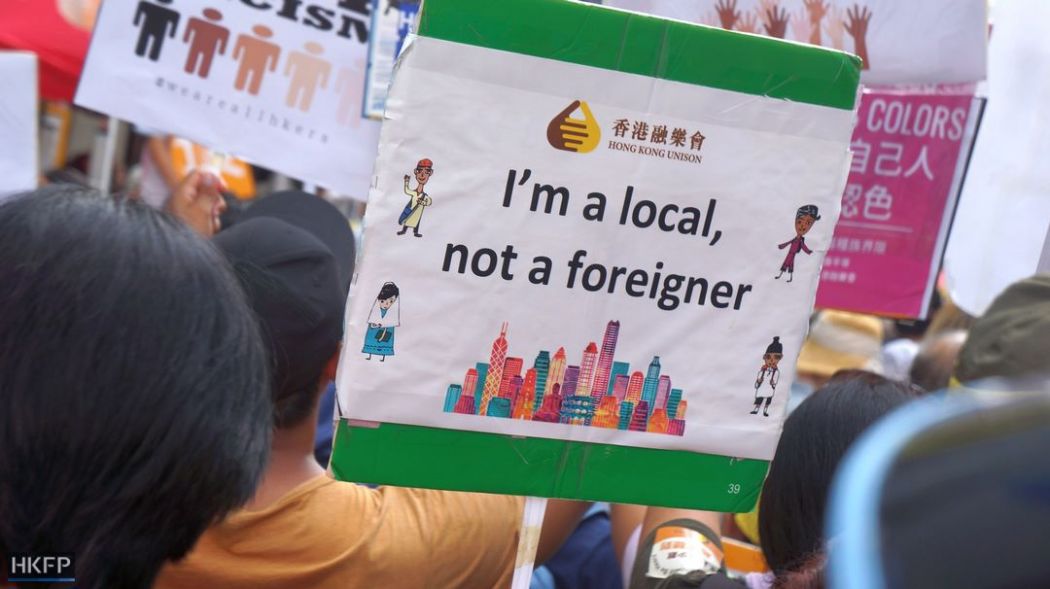
But Amaya’s mother and father fear she could be caught by police and their asylum claims could be ruined.
Human rights lawyer Karen McClellan, says that refugees and asylum seekers are subject to the same potential legal consequences as anyone else attending an unlawful protest. However, for asylum seekers there are further concerns.
McClellan says that if somebody with an ongoing non-refoulement claim did participate in an unlawful assembly, and in due course, got prosecuted and convicted, it could have implications if their case is accepted.
“Aside from legal consequences in Hong Kong, they could face issues for resettlement later down the road,” she says.

Amaya’s mother didn’t speak to her for two days as a result of their verbal clash.
“I didn’t go [to the protests] in the end, but if it wasn’t for my status, I would have,” she says. “I understand as asylum seekers, it’s a big risk to attend. But if that wasn’t a concern, I’d be on the streets with my people.”
Her father, on the other hand, is struggling with aggravated symptoms of PTSD and anxiety – a result of the violent clashes between the Hong Kong police and protesters.
“My father doesn’t say a lot, but he’s told me a little bit about his life,” says Amaya. “It was too overwhelming. He was subject to years of torture; physically and emotionally. He is trying to remain strong for us, but I know he is on edge now.”
The emotional triggers intrinsic of their status, and the fact they are often met with prejudice because of their classification, appear to make asylum seekers and refugees feel particularly powerless in the extradition bill dialogue.
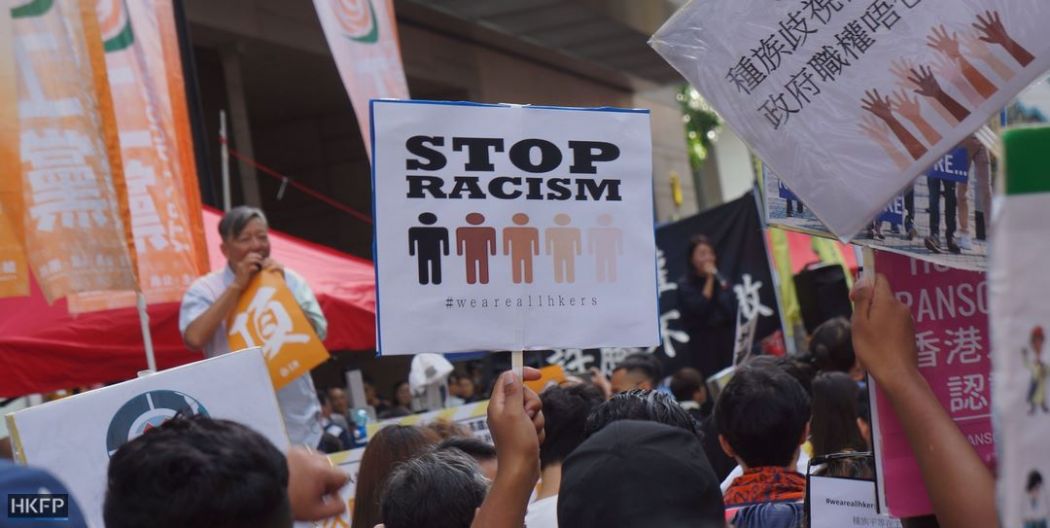
The ill-fated extradition bill would have allowed case-by-case fugitive transfers to China, which lacks rights protections. Since June, large-scale peaceful protests have evolved into – sometimes violent – displays of dissent over Beijing’s encroachment, democracy, alleged police brutality, surveillance and other community grievances.
“Even though my parents are concerned about our safety, they share the same views as me,” says Amaya. “They stand behind the protesters. But sadly, we just cannot show it publicly.”
Recently, the refugee community has become subject to further discrimination and harassment, following the Yuen Long attacks that occurred on July 21. That night, after a largely peaceful demonstration, men dressed in white t-shirts violently attacked protesters and residents inside Yuen Long MTR.
Netizens suggested members of the ethnic minority community were behind the attacks, after some videos depicting brown-skinned men wearing white t-shirts started circulating online. Since many asylum seekers and refugees are of South Asian, African or Middle Eastern descent, they have inevitably become subject to misjudgement.
“Many asylum seekers are afraid of leaving their home,” says Anthony, a 42-year-old asylum seeker from the West African region. “They’re scared of being targeted and accused of attacking civilians.”
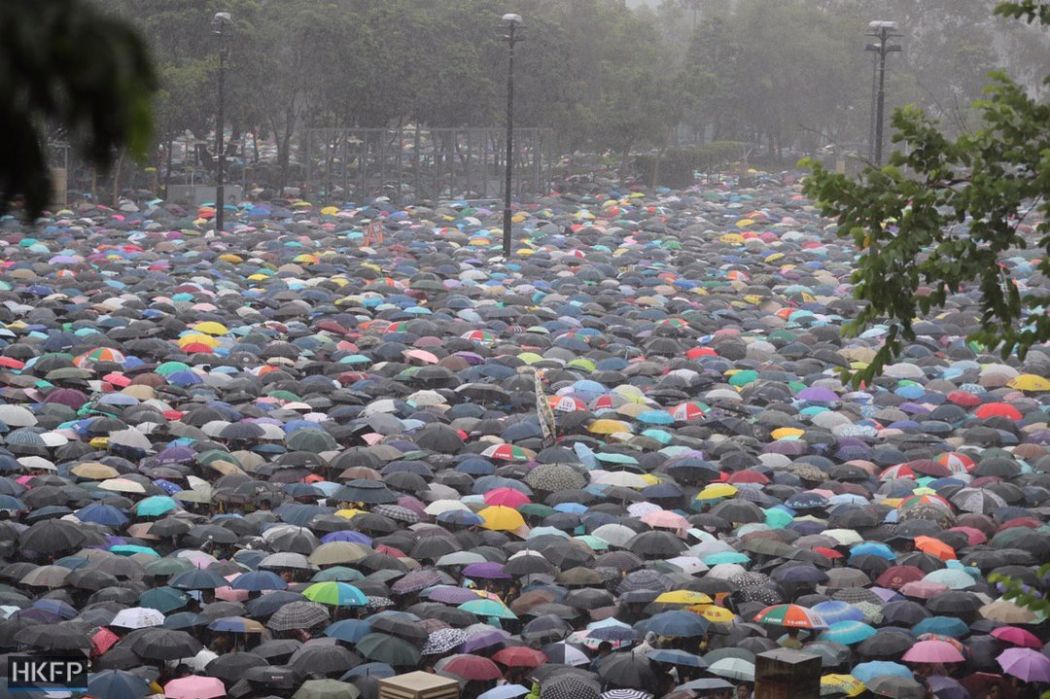
Anthony considers himself “a Hongkonger.” He has been living here for 15 years, and has contributed significantly to Hong Kong society.
“I go to schools and give talks about cultural sensitivity and inclusion, I advise the police and even the government on issues faced by ethnic minority groups,” he says. “I have devoted my life in Hong Kong to social causes, because I care about this city. I don’t get paid; I do it because I have a genuine passion for it.”
Anthony believes he has a right to demonstrate his dissatisfaction with the government. He attended the protests on three occasions, including the historic march on June 16, which organisers say attracted two million people.
He believes that ethnic minority groups were used as “guinea pigs” on the night of July 21, especially since many within the ethnic minority community – including asylum seekers and refugees – support peaceful demonstrations.
“Some members of the South Asian community were purposely encouraged to join the ‘white t-shirt group’,” says Anthony. “Ethnic minority groups were used as a shield, and painted in a bad light. But we don’t condone any sort of violence!”

As a result, the community has been told to be careful about their choice of clothing.
“If we wear black, we could be attacked by the police; if we wear white, we could be wrongfully accused of being against the movement,” says Anthony. “It’s just crazy!”
While Anthony is not concerned about these warnings, he is sad that his friends are deeply affected by it.
“They are scared,” he says. “I am telling you, they are scared. And it breaks my heart.”
McClellan adds that though the extradition bill may be “dead for now”, if the amendments ever did pass, or if it is revived, it could have damaging repercussions for the asylum seeker and refugee community.
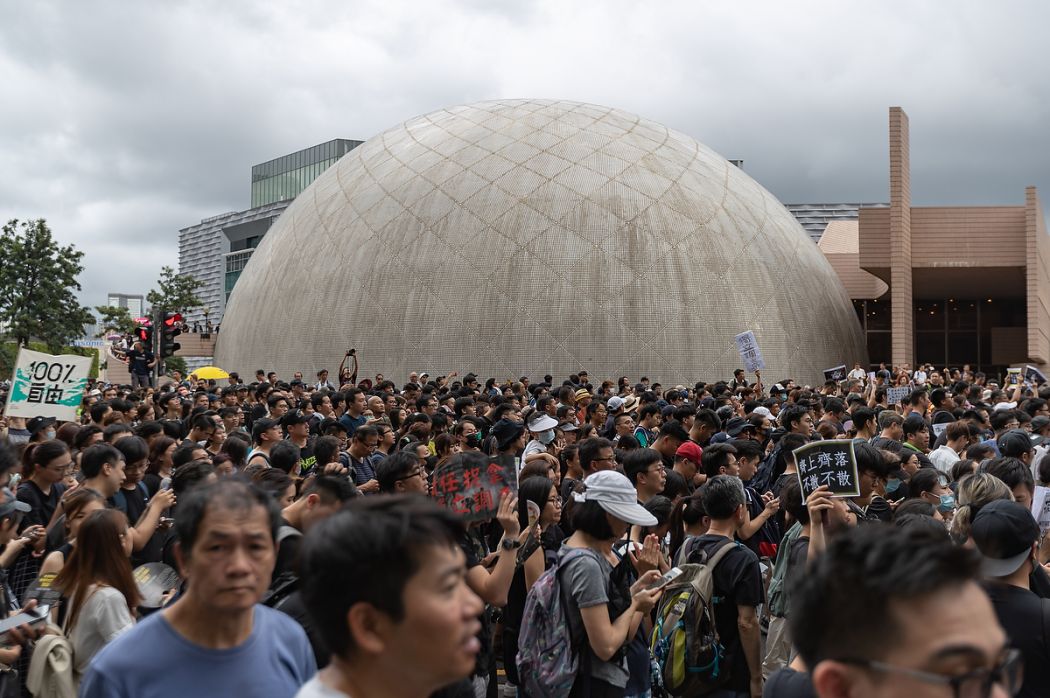
Among the scheduled offences for which extradition would have been allowed were immigration offences. This includes using false documents to enter Hong Kong, or China.
“This is quite significant for the asylum-seeking community,” says McClellan. “When they are fleeing extreme situations, it is not uncommon to obtain false travel documents or enter a country illegally. They don’t have another option. They are fleeing for their lives.”
Often, asylum seekers transit through mainland China before entering Hong Kong. Lawyers are concerned that because of this, they could be at risk of being extradited to the mainland, where many worry about the region’s human rights violations.
Members of Daly & Associates, the firm where McClellan works, joined the lawyers’ silent march on June 6, to take a stand against the controversial bill.
“People have to be made aware of the dangerous consequences [of the bill],” she says.
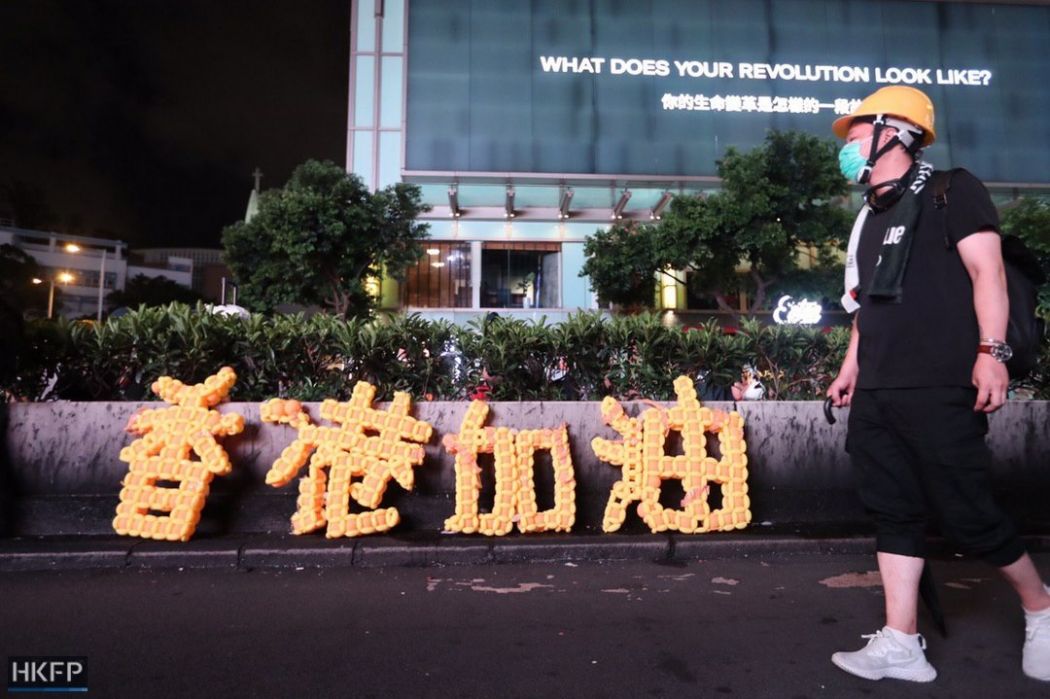
But while McLellan and her colleagues took a stand for what they believe in, groups that are most at risk of these consequences have been side-lined.
“We are excluded from this dialogue completely,” says Anthony. “No one listens to us and no one wants to hear what we have to say.”
Some NGOs are arranging workshops and discussions for the ASR community, to hopefully inform them of their rights, and answer some of their queries. The goal is to put an end to some of their fears.
But at the end of the day, despite the hardship and adversity, Anthony knows that his only option is to continue to strive for a better future.
“They can’t stop me from doing what I do, from living my life,” he says. “We just have to continue to fight for our rights. We have to do it.”
Anita, Amaya, Anthony and Lateef were granted pseudonyms to protect their asylum claims. If you are experiencing negative feelings, please call: The Samaritans 2896 0000 (24-hour, multilingual), Suicide Prevention Centre 2382 0000 or the Social Welfare Department 2343 2255. The Hong Kong Society of Counselling and Psychology provides a WhatsApp hotline in English and Chinese: 6218 1084. See also: HKFP’s comprehensive guide to mental health services in Hong Kong
Hong Kong Free Press relies on direct reader support. Help safeguard independent journalism and press freedom as we invest more in freelancers, overtime, safety gear & insurance during this summer’s protests. 10 ways to support us.

